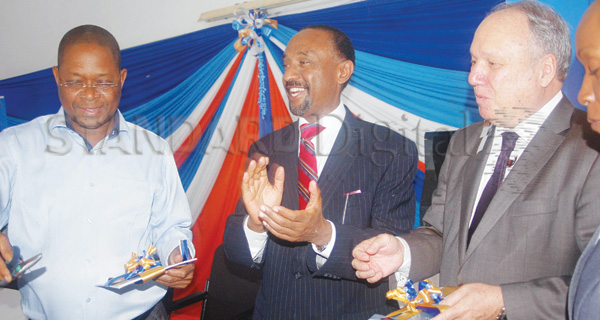×
The Standard e-Paper
Home To Bold Columnists
 |
| Africa Development Bank Regional Director Gabriel Negatu, UNDP Resident-Representative Steven Ursino (right) and Kilifi Senator Stewart Madzayo when they launched the global Human Development Index report for 2013 at Pwani University, yesterday. [PHOTO: JOSEPH MASHA/STANDARD] |
By JOSEPH MASHA
Kenya: Kenya has been ranked lowly in a UN global survey on well being and quality of life beyond annual economic growth rates.